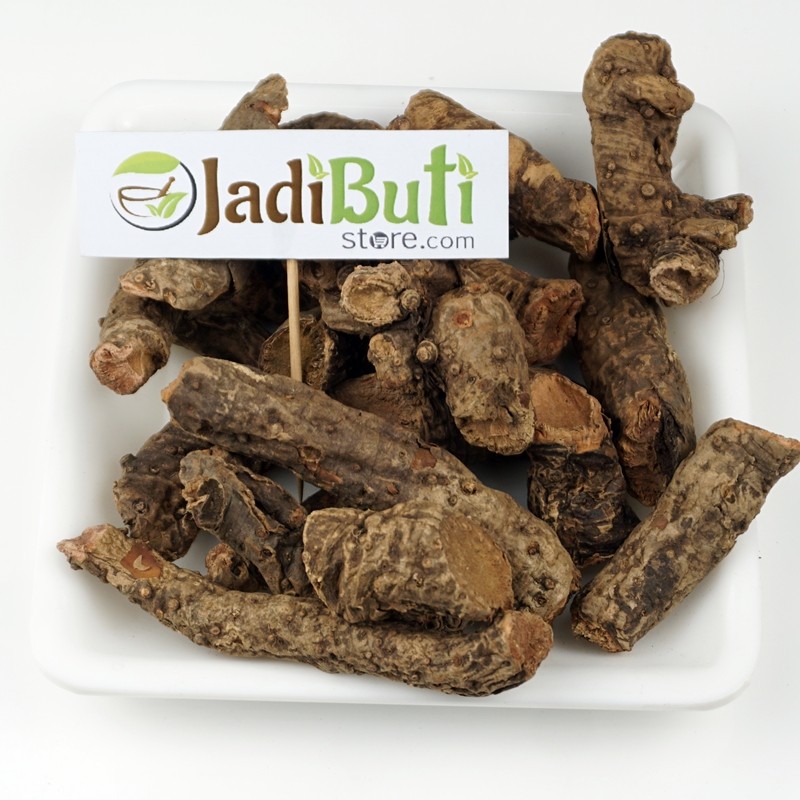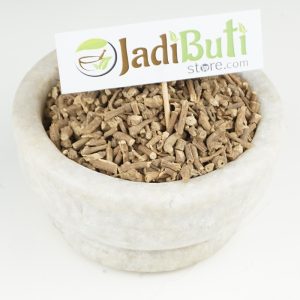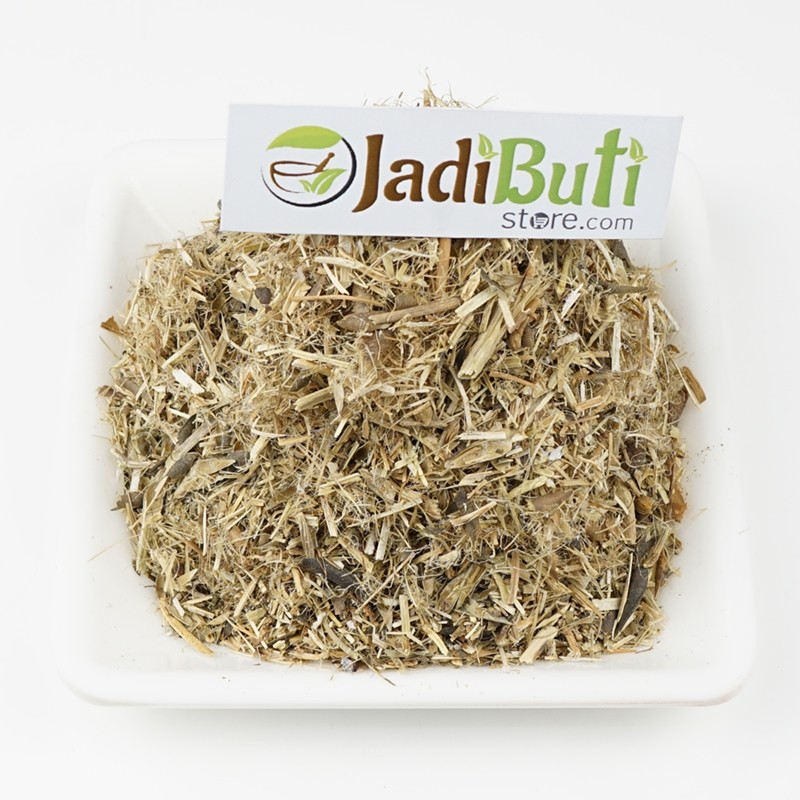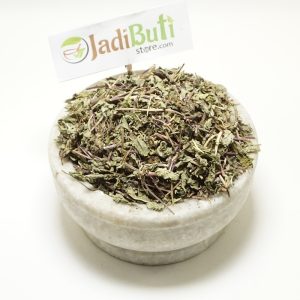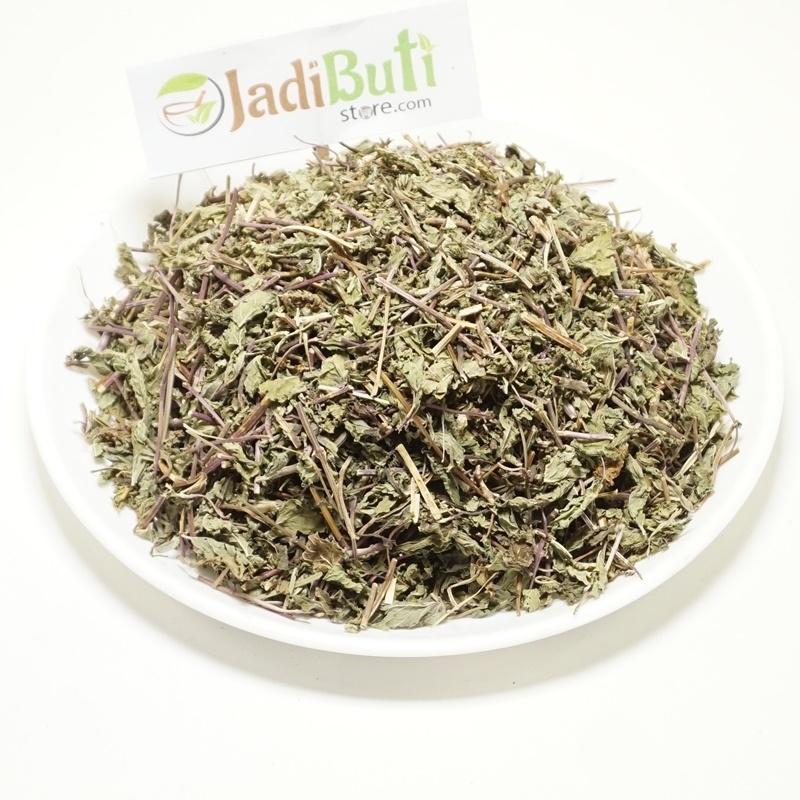Herbs
Showing 145–156 of 198 results
-
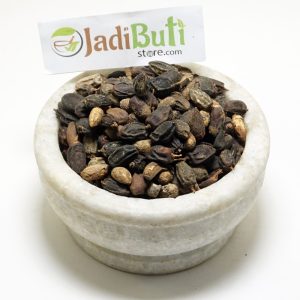
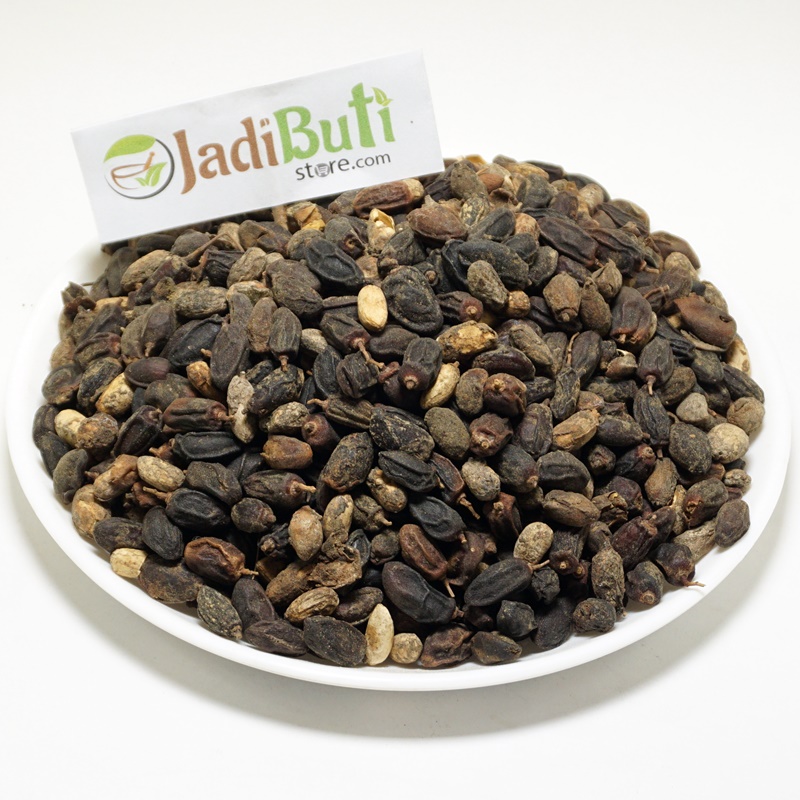
Nimboli – निम्बोली – Neem Seed – Azadirachta indica
₹150.00 – ₹1,180.00Quick ViewNeem Seed | Botanical Name: Azadirachta indica
Product : Neem Seed Dry
Ayurvedic Property Description Rasa (taste) Bitter, Astringent Virya (energy) Cooling Vipaka (post-digestive effect) Pungent Guna (quality) Light, Dry Health Benefits:
- Blood sugar control
- Wound healing
- Respiratory health
- Anti-cancer properties
- Anti-fungal properties
- Supports cardiovascular health
Active Compounds:
- Nimbin, Nimbinin, Nimbidin, Azadirachtin, Salannin
-
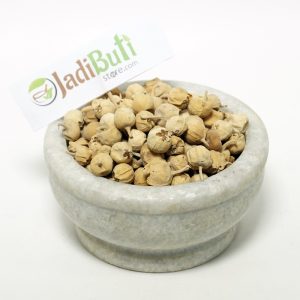
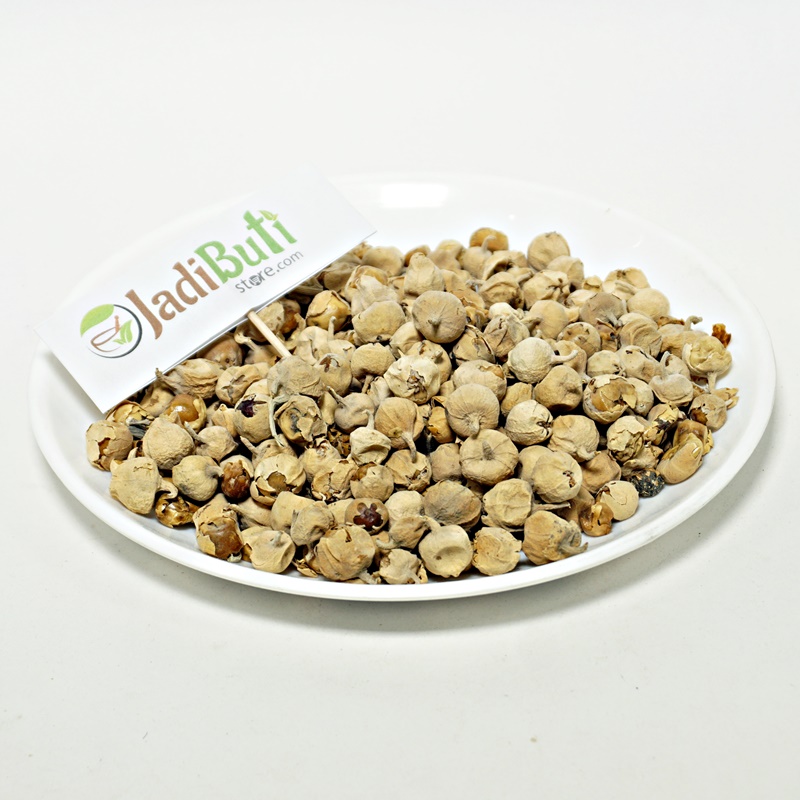
Paneer Doda – Tukme Hayat – Paneer Dodi – Withania Coagulans
₹110.00 – ₹825.00Quick ViewPaneer Doda | Paneer Dodi | Withania Coagulans.
Ayurvedic classification of Paneer Dodi (Withania coagulans):
Ayurvedic Classification Description Rasa (taste) Bitter, astringent, and sweet Guna (qualities) Light, dry, and sharp Virya (potency) Heating Vipaka (post-digestive effect) Sweet Dosha effect Pacifies Kapha and Vata doshas Karma (actions) Digestive, anti-inflammatory, anti-diabetic, immune-modulating, and anti-cancer Dhatu (tissue) affinity Works primarily on the digestive and respiratory tissues Srotas (channel) affinity Works primarily on the digestive and respiratory channels Prabhava (special effect) Helps to regulate blood sugar levels Active compounds and benefits of Paneer Dodi (Withania coagulans):
Active Compound Benefits Withanolides Anti-inflammatory, anti-cancer, immune-boosting, and adaptogenic properties Withaferin A Anti-inflammatory, anti-cancer, neuroprotective, and cardioprotective properties Coagulin Hypoglycemic, antidiabetic, and lipid-lowering properties Steroids (β-sitosterol, stigmasterol, and campesterol) Anti-inflammatory, antioxidant, and immune-boosting properties Flavonoids (luteolin, apigenin, and kaempferol) Antioxidant, anti-inflammatory, and anti-cancer properties -


Paurush Kawach | पौरुष कवच
₹4,200.00Quick View- अश्वगंधा 50ग्राम
- सफेद मूस्ली 50 ग्राम
- शतावर 50 ग्राम
- तालमखाना 20 ग्राम
- अतिबला पंचांग 20 ग्राम
- विदारी कंद 20 ग्राम
- पहाड़ी ईमली बीज 20 ग्राम
- कौंच बीज 20 ग्राम
- ईरानी अकरकरा 20 ग्राम
- गंगरेन की छाल 20 ग्राम
- सालाब पंजा 20 ग्राम
- गोखरू 20 ग्राम
- शिलाजीत 30 ग्राम
- रस सिन्दूर 2.5 ग्राम
- लौह भस्म 10 ग्राम
- वंग भस्म 10 ग्राम
- मोती भस्म 500 मिली ग्राम
-
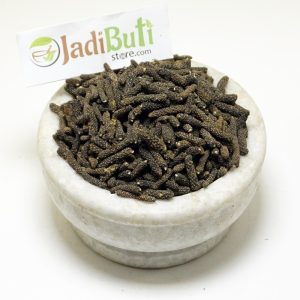
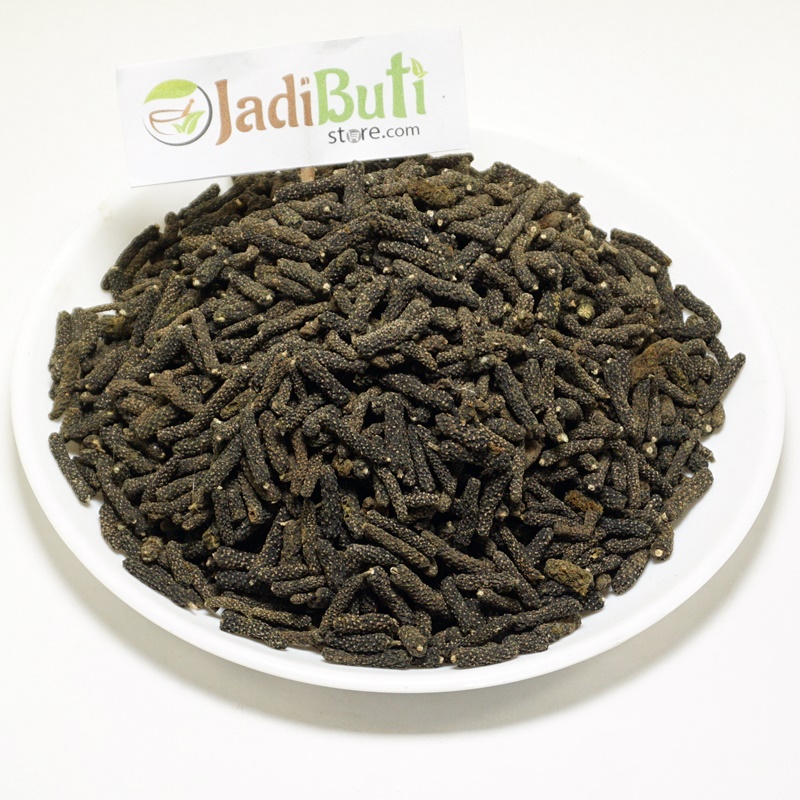
Pipali (organic) – पिपली – Long pepper – Piper retrofractum
₹240.00 – ₹1,980.00Quick ViewCommon name: Pipali (also known as long pepper), Scientific name: Piper longum
Family: Piperaceae , Origin: South Asia
Uses:
- Used as a spice in Indian and Southeast Asian cuisine
- Traditional Ayurvedic medicine for digestive aid, respiratory health, anti-inflammatory, immune booster, detoxification, weight loss, anti-aging, pain relief, mental clarity, and reproductive health
Precautions:
- May interact with certain medications
- May cause gastrointestinal irritation in some people
- Not recommended for use in pregnant or breastfeeding women
Ayurvedic Property Description Rasa (Taste) Pungent, bitter Virya (Energy) Heating Vipaka (Post-Digestive Effect) Pungent Prabhava (Special Effect) Respiratory, digestive, reproductive systems Dosha Balancing Pacifies Kapha, increases Pitta -
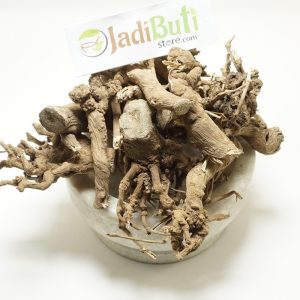

Punarnava – पुनर्नवा – Tarvine – boerhavia diffusa
₹110.00 – ₹875.00Quick ViewName: Punarnava | Scientific Name: Boerhavia diffusa
Other Names: Spreading Hogweed, Tarvine
Properties Description Rasa (Taste) Bitter, Astringent, Sweet Virya (Energy) Cooling Vipaka Sweet Guna (Quality) Light, Dry Health Benefits:
- Kidney Health: Punarnava is considered a potent diuretic in Ayurveda, and it may help improve kidney function and treat conditions like nephritis and urinary tract infections.
- Anti-inflammatory Properties: Punarnava has anti-inflammatory properties and may help reduce inflammation and pain in conditions like arthritis and gout.
- Liver Health: Punarnava is considered a liver tonic in Ayurveda, and it may help improve liver function and treat conditions like jaundice and hepatitis.
- Respiratory Health: Punarnava is used in Ayurveda to treat respiratory conditions like asthma, bronchitis, and coughs.
- Heart Health: Punarnava is used in Ayurveda to treat cardiovascular conditions like high blood pressure and heart disease.
- Anti-aging: Punarnava is known as a “rejuvenating” herb in Ayurveda, and it may help slow down the aging process.
Parts Used: Roots
-


Pyaj Beej – प्याज बीज – Onion Seed – Allium cepa
₹90.00 – ₹690.00Quick ViewName Allium cepa seed Other Names Onion seed, Pyaj ka beej (Hindi) Rasa (Taste) Pungent, Bitter, Astringent, Sweet Virya (Energy) Heating Vipaka (Post-Digestive Effect) Sweet Guna (Qualities) Light, Dry Health Benefits – Stimulates digestion and improves appetite.
-Helps relieve respiratory conditions like cough and asthma.
– Reduces inflammation and pain in the body.
– Prevents infections and promotes healing.
– Helps strengthen the immune system.
– Has antibacterial properties that prevent and treat skin infections.Parts Used Seeds -
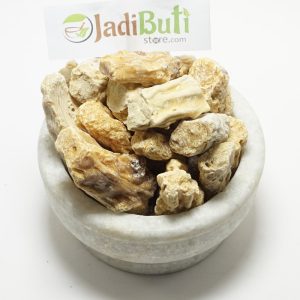
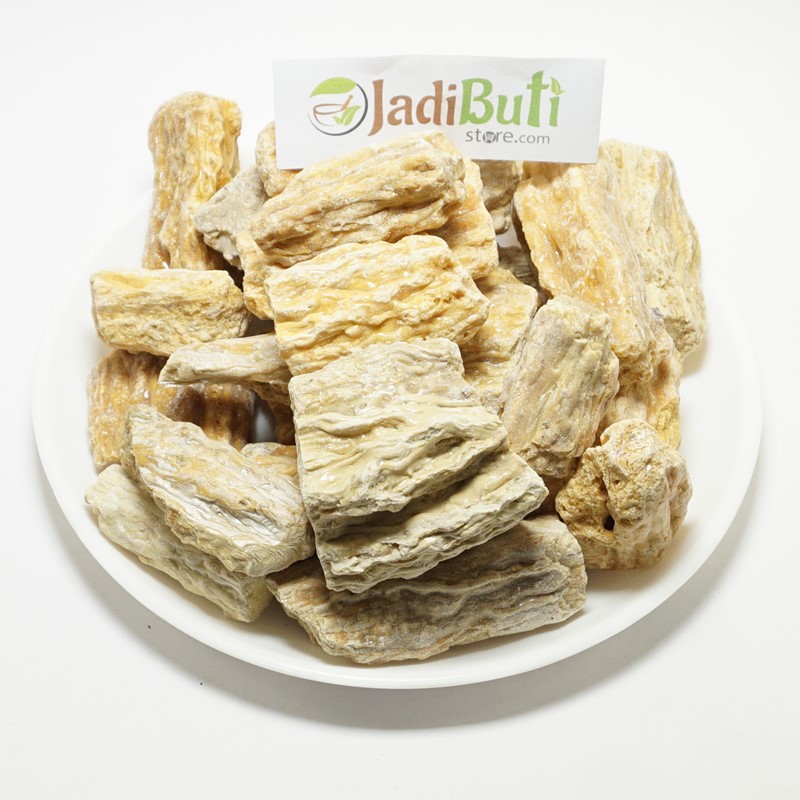
Raal – राल – Sal Tree – Shorea Robusta
₹170.00 – ₹1,150.00Quick ViewRaal – राल – Sal Tree – Shorea Robusta.
Raal Name In Different Languages:
Raal in English name – Resin, Rosin, Sal Tree
Raal in Hindi name – Raal
Raal in Latin name – Shorea Robusta
Raal in Punjabi : Shala,
Raal in Bengali : Shaalgaach,
Raal in Gujrati : Shaalvriksh,
Raal in Kannada : Kabba, Saal,
Raal in Malayalam : Saalvriksham, Mulappumarutu,
Raal in Marrathi : Shaalvriksh, Raalchaavriksha,
Raal in Oriya : Salva, Shaaluaagachha,
Raal in Tamil : Saalam,
Raal in Telugu : Guggilam
Quality :
This is a glue of shawl tree. It eliminates the acrid, cold (cold), juice- rich , blood-borne diseases , lethal (leprosy) and burning , fracture and diarrhea (diarrhea) .
Useful in various diseases :
1. Cough:
- Mixing about half grams of 1 gram resin with small peepal, turmeric, honey and ghee, it provides relief in cough diseases by taking it in the morning and evening.
- If the patient is consumed with a fourth part of approximately 1 gram, then the cough (mucus) is easily removed and coughing is also stopped.
2. Prostration Disease: Mixing 4 grams of sugar in 1 gram white resin and eating it with milk in the morning and evening gives benefits in the disease.
-
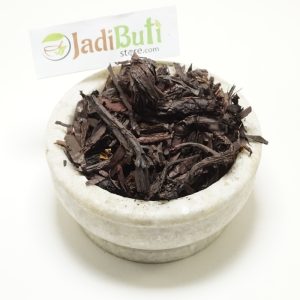
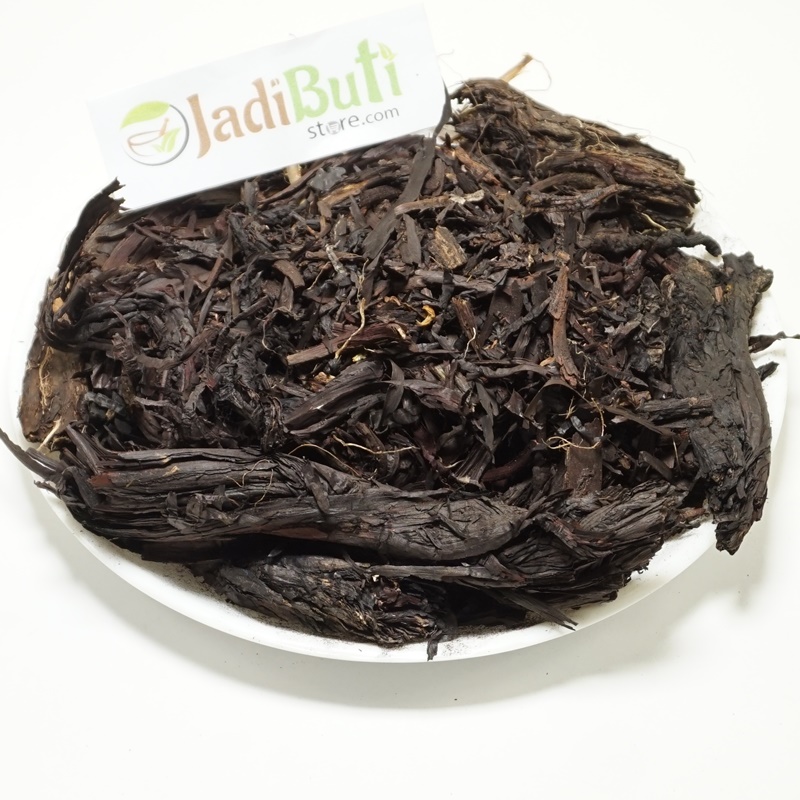
Ratanjot – रतनजोत – Alkanet – Onosma echioides
₹210.00 – ₹1,740.00Quick ViewName: Ratanjot (Alkanet root or Alkanna tinctoria)
Uses: Ratanjot is a medicinal herb commonly used in Ayurvedic medicine. It is believed to have anti-inflammatory, analgesic, antimicrobial, and hepatoprotective properties. Ratanjot has been traditionally used to treat various conditions, including skin inflammation, digestive disorders, respiratory conditions, and wound healing. It may also help support cardiovascular health and have anti-cancer and anti-aging properties.
Precautions: Ratanjot should always be used under the guidance of a qualified Ayurvedic practitioner, as it can interact with certain medications and may not be safe for everyone to use. Pregnant and breastfeeding women should avoid using Ratanjot. Additionally, it may cause allergic reactions in some people.
Forms: Ratanjot is available in various forms, including dried roots, powder, capsules, and oil.
Scientific evidence: While Ratanjot has been used for medicinal purposes for centuries, more research is needed to fully understand its effects on human health. However, some studies have shown that Ratanjot contains compounds that have anti-inflammatory, antioxidant, and anti-cancer properties.


